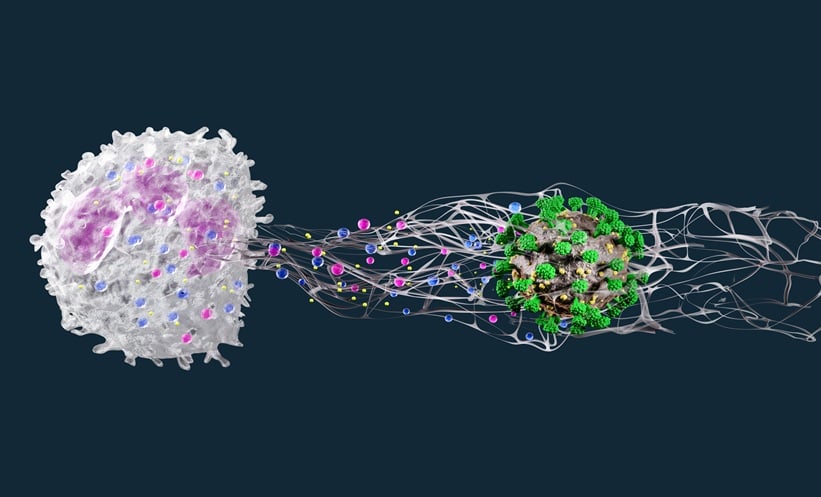PSORIASIS is a chronic inflammatory skin disease influenced by both genetic and environmental factors, affecting approximately 125 million individuals worldwide. It is often accompanied by metabolic disorders such as obesity, type 2 diabetes, and dyslipidaemia, which can exacerbate the severity of the condition. Obesity not only doubles the risk of psoriasis but also negatively impacts treatment efficacy, particularly in patients receiving biological therapies like secukinumab and ustekinumab. Despite these known associations, the precise mechanisms linking metabolic dysfunction and psoriasis exacerbation remain unclear.
Recent research has highlighted the role of neutrophil extracellular traps (NETs) in inflammatory diseases, including psoriasis. NETs are web-like structures released by activated neutrophils that contribute to immune system dysregulation. Notably, obesity has been linked to increased NET formation, which may further intensify inflammation. In psoriasis, NETs are abundant within skin lesions and the bloodstream, correlating with disease severity. The current study explored how lipid metabolism disorders promote NET production and exacerbate psoriatic inflammation.
Findings indicate that obese psoriasis patients and psoriasis-like mice exhibit increased systemic and cutaneous NETs, which are associated with disease progression. Furthermore, saturated fatty acids (SFAs), key components of lipid metabolism, were identified as triggers for NET formation via the TLR4-MD2/ROS signalling pathway. This cascade amplifies IL-17-driven inflammation, particularly through γδT17 cells, a key contributor to psoriasis pathology. Importantly, inhibition of NETs reduced psoriatic inflammation and improved responses to anti-IL17A therapy in mice with lipid metabolism disorders.
These results provide valuable insights into the link between obesity and psoriasis severity. The study suggests that targeting NET formation could enhance treatment efficacy in obese psoriasis patients who show poor responses to conventional biologics. Future research should explore additional lipid metabolites that influence NET generation and investigate the therapeutic potential of combining NET inhibitors with existing psoriasis treatments. Addressing the metabolic-inflammatory connection in psoriasis could lead to more effective, personalised treatment strategies for patients with comorbid obesity and lipid metabolism disorders.
Reference
Xia Y et al. Saturated fatty acid-induced neutrophil extracellular traps contribute to exacerbation and biologic therapy resistance in obesity-related psoriasis. Cell Mol Immunol. 2025;DOI:10.1038/s41423-025-01278-7.







